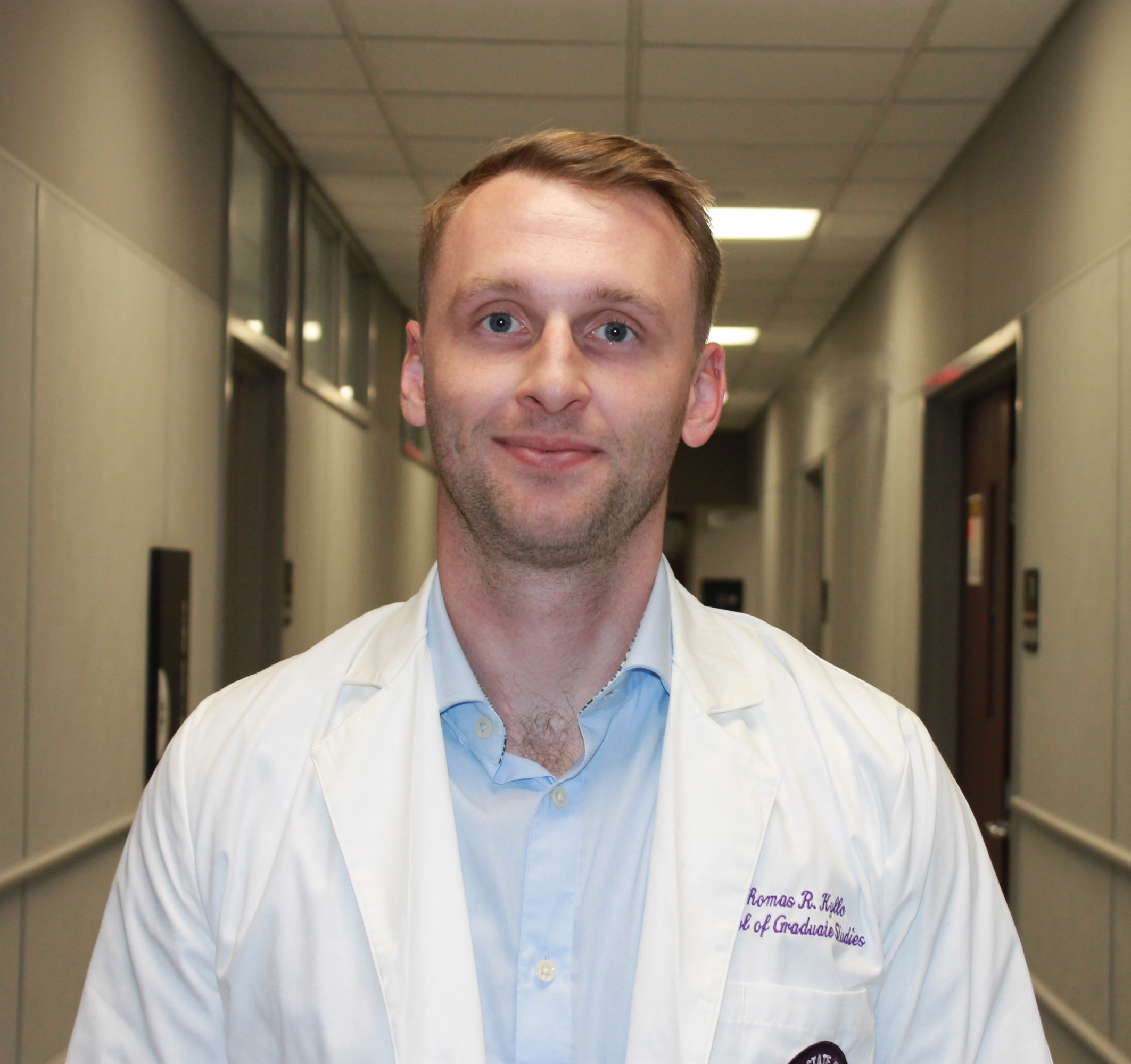
Lab Members
Dr. Tiffany Wills
Throughout my career I have been deeply invested in understanding the neurological underpinnings of alcohol dependence. I have used each stage of my training (from undergraduate to postdoc) to build complementary sets of technical skills and areas of study within the alcohol field. Some of the major themes of this work have focused on the developmental impacts of alcohol use. As an undergraduate at IUPUI, I began by evaluating the consequences of fetal alcohol exposure on addictive behaviors in adults. During my graduate training in the laboratory of Dr. Breese at UNC, I used behavioral pharmacology to determine the circuitry and mechanisms involved in the negative affect associated during alcohol withdrawal. It was also during this time that I began to evaluate the consequences of adolescent alcohol exposure on these withdrawal related behaviors. As a postdoctoral fellow in the laboratory of Dr. Winder at Vanderbilt University, I continued this investigation into the neurocircuitry, and molecular contributors of withdrawal induced negative affect. I found that alcohol regulation of NMDA receptor signaling was a critical for these effects. I was awarded K99/R00 Career Development Award to explore the role of GluN2B-NMDA receptor signaling mechanisms and how they were impacted by adolescent alcohol exposure. This work produced several findings that have become the focus of my lab. 1) Adolescent alcohol exposure produces sex dependent changes in BNST plasticity and negative affect behaviors. 2) These changes last into adulthood but require a second insult (like stress) to be uncovered.
Dr. Lucas Albrechet-Souza
Dr. Lucas Albrechet-Souza joined the Wills Lab in 2022 as an Instructor-Researcher. He has a background in Behavioral Neuroscience, with specific training and expertise in using preclinical rodent models to investigate behavioral responses and neural circuits altered by stress exposure and alcohol misuse. Dr. Albrechet-Souza earned his PhD in Psychobiology from the University of São Paulo in Brazil and completed postdoctoral training at both the University of São Paulo and Tufts University in Boston. Following this training, he received a highly competitive Brazilian award designed to attract outstanding researchers living abroad and foster collaboration between Brazil and the U.S. In 2018, Dr. Albrechet-Souza joined the LSU Health Sciences Center School of Medicine as an Instructor in the Department of Physiology and transitioned to the Department of Cell Biology & Anatomy in 2022. His current research focuses on exploring sex differences in the circuits and molecular contributors to negative affect and pain-related behaviors during alcohol withdrawal in mice. In his free time, Dr. Albrechet-Souza enjoys biking, working out, and traveling.
Dr. Thomas Kyllo
Dr. Thomas Kyllo joined the Wills Lab in 2024 as a postdoctoral fellow. His background is in mechanisms of synaptic transmission and neurodegeneration, Neurodegenerative disorders, and Tropical medicine/infectious diseases. After earning his Bachelor of Science in Biology from High Point University in 2017, Dr. Kyllo attended Tulane University from 2017-2019 where he received his Master’s in Public Health and Tropic Medicine and primarily conducted research on enterotoxigenic Escherichia coli. Additionally, during the course of completing his masters degree he also conducted both laboratory and field research at Universidad Autónoma de Yucatán la Facultad de Química, Centro de Investigaciones Regionales “Dr. Hideyo Noguchi” in Mérida Mexico focused on Trypanosoma cruzi and Chagas disease. Dr. Kyllo then joined the Neuroscience Center of Excellence at LSU Health Sciences Center - New Orleans in 2019 where he got his PhD in Neuroscience, where his dissertation work was focused on the development of novel antiglutamatergic, neuroprotective compounds in the kainic acid rat model of Temporal Lobe Epilepsy. After obtaining his PhD in 2024 he joined the Wills and Gilpin labs as a T32-supported postdoctoral fellow. Dr. Kyllo’s current research focuses on examining the effects of adolescent alcohol exposure on pain-like phenotypes during adulthood with a focus on midbrain cells and circuits along with understanding the role glial cells play in adolescent alcohol-associated hyperalgesia in adults.
Linh Ha
Linh earned her Bachelor of Science in Chemistry from Xavier University of Louisiana in 2018. During her time at Xavier, she conducted research on the development of chemical compounds aimed at inhibiting tau phosphorylation, a process involved in both angiogenesis and Alzheimer’s disease. Following her passion for the sciences, she pursued a Master of Science in Pharmacology, which she obtained from Tulane University in 2020. Her strong interest in chemistry and pharmacology led her to pursue a PhD in Neurobiology. Linh joined the Wills lab in the Spring of 2021 and is currently in her third year as a PhD candidate. Her research focuses on the impact of adolescent alcohol exposure on the development of alcohol use disorder (AUD) later in life, specifically exploring the bidirectional relationship between AUD and chronic pain. Her work investigates the role of corticotropin-releasing factor (CRF) and CRF receptor 1 (CRFR1) in the bed nucleus of the stria terminalis (BNST), as well as other factors contributing to the interplay between AUD and chronic pain. Outside of her research, Linh is passionate about mentoring and inspiring others to pursue scientific research. In her free time, she enjoys spending time with family and friends, working on puzzles, or simply relaxing.
Griffin Smith
Griffin earned his B.S. in Neuroscience and B.A. in Latin American Studies at Tulane University in 2020, followed by his M.S. in Neuroscience in 2021. He is currently a medical student at LSUHSC School of Medicine, where he is a member of the Latin Health Scholars honors program and hopes to pursue a career in neurology. Griffin began working in the Wills Lab through the T35 Summer Research program, during which he investigated the use of tissue clearing and immunolabeling to evaluate the activity of CeA inputs in response to a pain challenge. He enjoyed his time in the lab and is very excited to continue helping with future projects. In his spare time he enjoys exploring the city, teaching ESL, and traveling.













